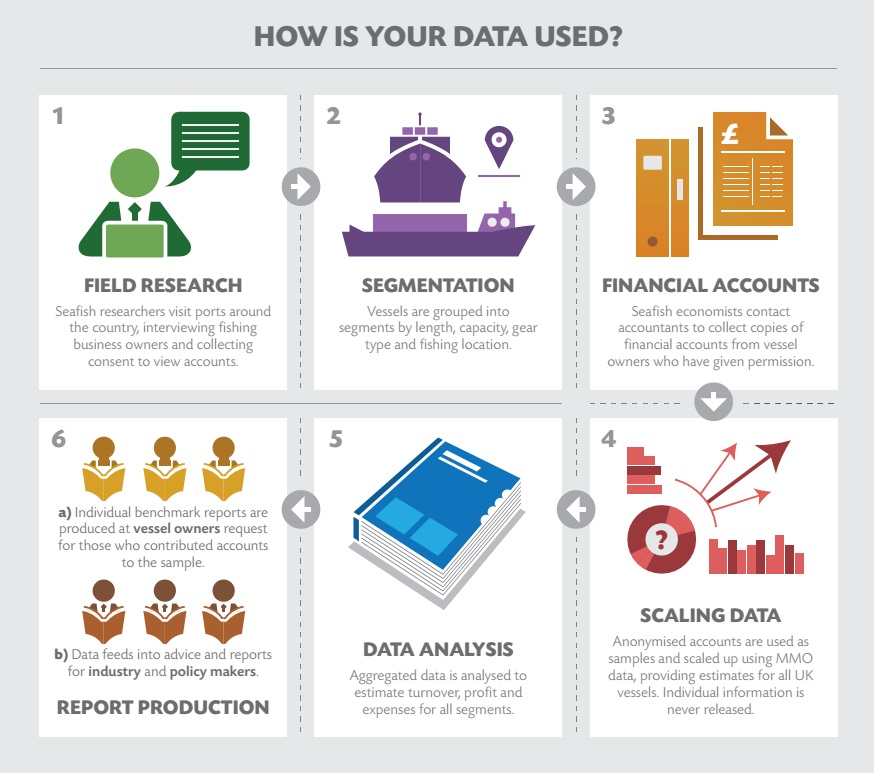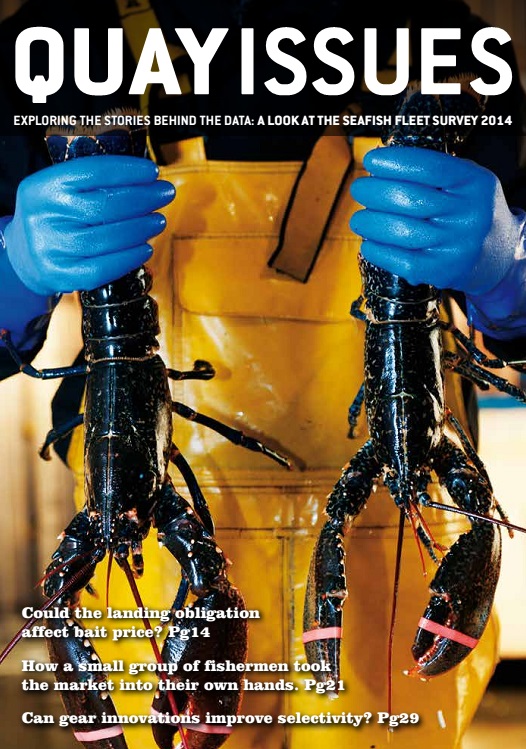3 February 2015
Kirsten Milliken, Research Assistant at Seafish, the authority on Seafood in the UK, explains how its service is vital to the continuation of a sustainable industry.
Balancing costs and earnings is a challenge for every business owner. Fishing businesses face the added challenge of having to do this in a climate of constantly changing management measures, meaning they must constantly adapt their businesses practices. Fishermen have first-hand experience of how these changes can affect their businesses financially. Communicating evidence of this to the wider industry and policy makers is vital in putting forward the fishermen’s case when assessing potential changes in management measures.

Each year Seafish carries out our Economic Survey of the UK Fishing Fleet. This national research project allows us to estimate costs and earnings for different vessel segments. We use this data to assess long term trends and identify the drivers of profitability.
When industry or policy makers are considering the implications of proposed changes in fisheries management measures, either nationally or in a particular region, they can request data analysis from us showing how the industry would be affected. The outputs of this research are therefore of great importance because they provide strong economic evidence which organisations like the NFFO and other industry representatives can use when arguing the case of industry to Government at national and EU level.
The survey is carried out through face to face interviews with fishing vessel owners across the country. This gives us a unique opportunity to speak directly to fishermen about the challenges they face and their expectations and ambitions for the future.
As one of this year’s field researcher on the Fleet Survey I have heard individual stories from around the country of rising costs, stagnating prices, fears of new legislation, restrictions to fishing effort, damage or loss of gear and conflict both within and between sectors. However, despite the multitude of difficulties, I have also heard inspiring stories of individuals taking innovative and creative approaches to tackling these problems.

As a result of our survey, we produce several major outputs for industry and policy makers. Vessel owners who contribute financial accounts to the survey are provided with a personalised benchmark report for their business, free of charge. The benchmark allows fishing vessel owners to compare the performance of their vessel with the average in their segment, allowing them to identify where cost savings can be made.
Other outputs include the Key Features Report, Submissions to the EU fisheries Economic Data Collection Framework and our multi-annual dataset. These are intended to help intended to help industry and policy makers better understand the socio-economic consequences of changes in fisheries management measures. However, the scope of these pieces of work could not possibly reflect the depth and complexity of the discussions that I and my fellow field researchers had with individual vessel owners during the interviews.

This year for the first time Seafish have produced a magazine to celebrate and share some of the inspiring stories that myself and my colleagues heard during our interviews with vessel owners. Quay Issues discusses the main challenges described by vessel owners and features case studies to illustrate how some are overcoming these challenges. We cover topics including how to reduce spending on fuel, modifying gear to reduce discards and how spatial agreements can reduce conflict between sectors.
To claim your free copy of Quay Issues, please write to us at: kirsten.milliken@seafish.co.uk with your contact details. If you would like to get involved with future surveys please write to our Data Collection Project Manager, Steven Lawrence at: steven.lawrence@seafish.co.uk.
